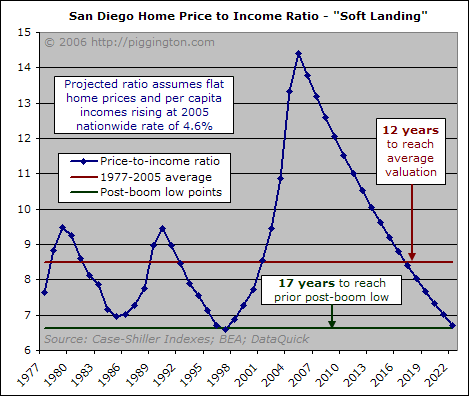barbarus
Recycles dryer sheets
- Joined
- Aug 1, 2007
- Messages
- 433
If you would like to know the proper value for a house, find its price(or the price of comps) in 1997 and multiply by the CPI over that time.
As a crude approximation, multiply the '98 price by 1.3 and you'll see the value in '07.
Lotsa fools paid much more in recent years.
Now we must pay for their moronicity.
Housing never goes down.
It's different here.
Everybody wants to live in __________ .
Buy now or be priced out forever!!!!!
"Every minute they make another sucker."
P.T Barnum
As a crude approximation, multiply the '98 price by 1.3 and you'll see the value in '07.
Lotsa fools paid much more in recent years.
Now we must pay for their moronicity.
Housing never goes down.
It's different here.
Everybody wants to live in __________ .
Buy now or be priced out forever!!!!!
"Every minute they make another sucker."
P.T Barnum



